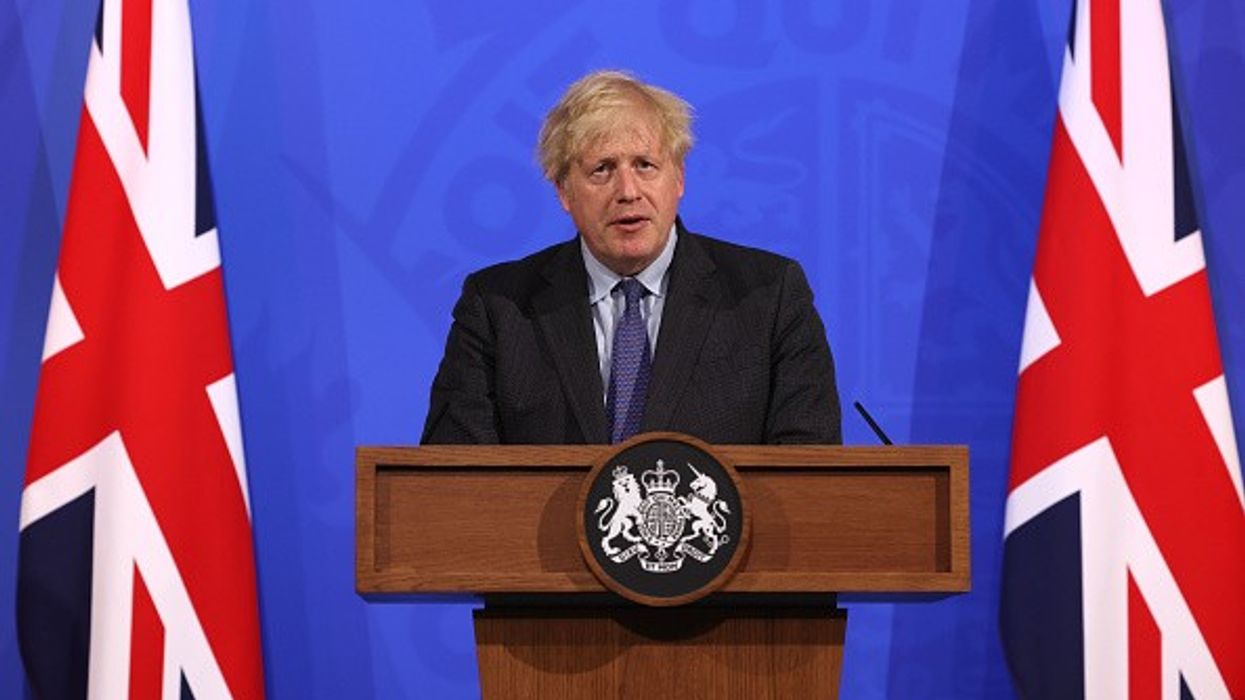BREAKING an election pledge not to raise taxes, British prime minister Boris Johnson on Tuesday (7) announced hefty new funding to fix a social care crisis and a pandemic surge in hospital waiting lists.
The government said the tax hike brings Britain into line with France, Germany and Japan, which have all raised social insurance levies to help care for ageing populations.
Johnson conceded that the 1.25 per cent levy on UK national insurance contributions - paid both by workers and their employers - violated Conservative manifesto promises ahead of the December 2019 election.
"No Conservative government wants to raise taxes," he told a news conference, after an uproar among many of his backbenchers and reports of a cabinet rift over the plan.
But arguing "Covid wasn't in our manifesto either", Johnson said "nor could we in good conscience meet the cost of this plan simply by borrowing the money and imposing the burden on future generations".
The coronavirus pandemic has fuelled a record backlog of 5.5 million routine procedures on the state-run National Health Service (NHS), rising to 13 million by the end of the year if left unchecked, the government said.
It announced an initial package of £5.4 billion (6.3 billion euros, $7.5 billion) in extra funding for the NHS to help clear the backlog over the coming months.
The new national insurance levy will then raise £36 billion over the next three years for the NHS, before it is targeted directly to funding elderly care.
While national insurance is paid by all UK workers except the low-paid, the government said a 1.25 per cent levy would also be slapped on share dividends, to capture the better-off who rely on investments for income.
Another manifesto breach
At present, anyone with assets over £23,250 has to pay in full should they need to go into a care home, for instance if they develop dementia.
That has led to many elderly Britons being forced to sell their homes and liquidate their life savings.
Under the new plan, from October 2023, anyone with assets of £20,000-£100,000 will contribute to their care but will also get means-tested support.
No one will have to pay over £86,000 over their lifetime.
Johnson, who entered Downing Street in 2019 claiming to have a plan ready on social care, said successive governments had ducked the electorally tricky challenge for too long.
"There cannot be any more dither or delay," he told parliament. "You can't fix the NHS without fixing social care."
The government also announced another manifesto breach in scrapping a guarantee that would have seen retirees get an annual raise to their state pension by some eight per cent next year.
With wages frozen for many state employees but labour shortages driving up private-sector salaries, Johnson said the "statistical freak" for pensioners was unjustified.
Opposition parties seized on the latest U-turns by Johnson's government, which has also broken with its electoral pledges by slashing the foreign aid budget.
Employers' union the CBI accepted social care reforms and greater investment were "long overdue" but said businesses already faced a corporation tax hike in 2023.
CBI president Karan Bilimoria said a national insurance increase "will directly hurt a business' ability to hire staff, at a time when businesses have faced a torrid 18 months and are now fighting crippling labour shortages".
But the government says its massive spending during the pandemic must force a fiscal reckoning, and takes comfort in opinion polls that suggest solid support for overhauling social care.
(AFP)




